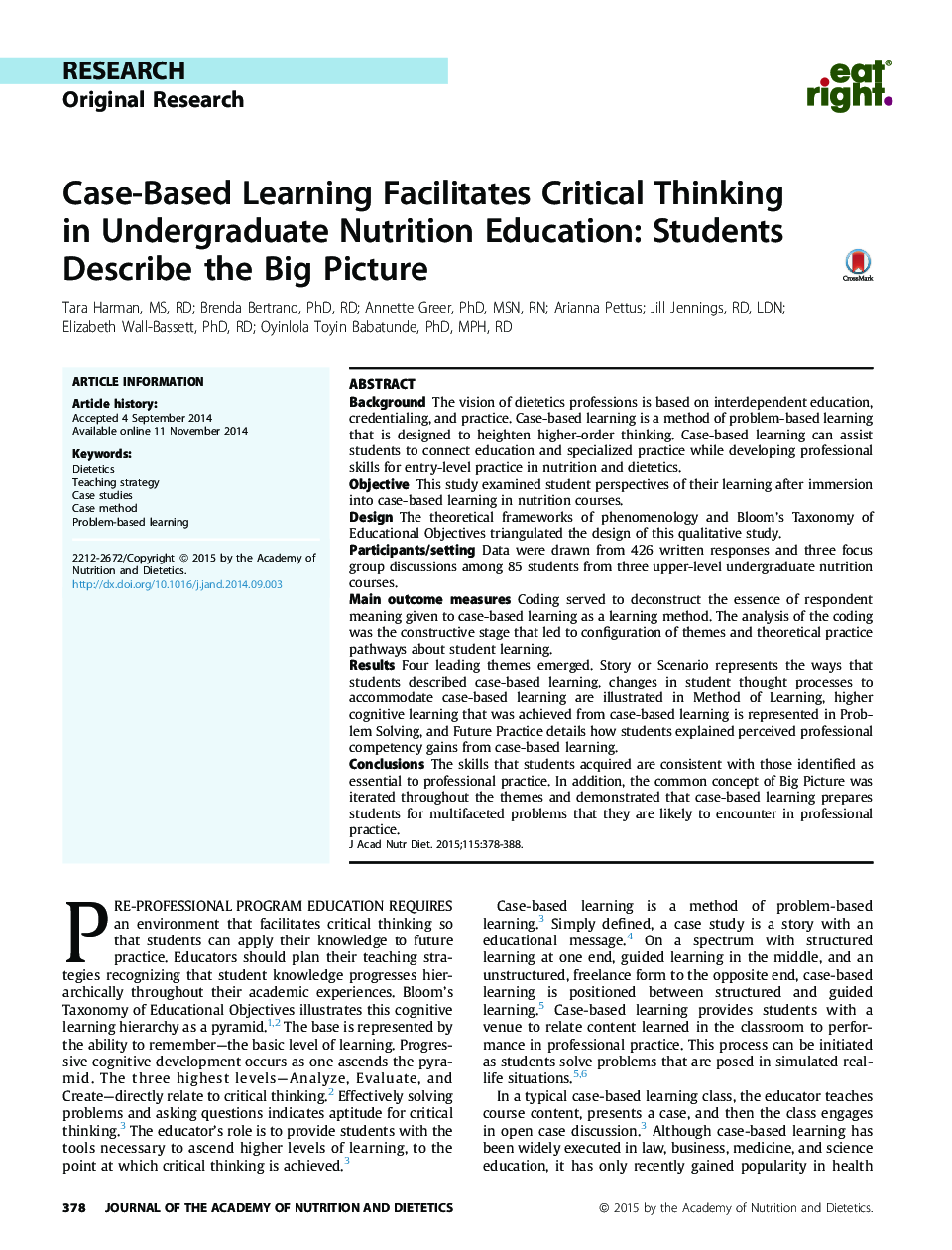| Article ID | Journal | Published Year | Pages | File Type |
|---|---|---|---|---|
| 2656890 | Journal of the Academy of Nutrition and Dietetics | 2015 | 11 Pages |
BackgroundThe vision of dietetics professions is based on interdependent education, credentialing, and practice. Case-based learning is a method of problem-based learning that is designed to heighten higher-order thinking. Case-based learning can assist students to connect education and specialized practice while developing professional skills for entry-level practice in nutrition and dietetics.ObjectiveThis study examined student perspectives of their learning after immersion into case-based learning in nutrition courses.DesignThe theoretical frameworks of phenomenology and Bloom’s Taxonomy of Educational Objectives triangulated the design of this qualitative study.Participants/settingData were drawn from 426 written responses and three focus group discussions among 85 students from three upper-level undergraduate nutrition courses.Main outcome measuresCoding served to deconstruct the essence of respondent meaning given to case-based learning as a learning method. The analysis of the coding was the constructive stage that led to configuration of themes and theoretical practice pathways about student learning.ResultsFour leading themes emerged. Story or Scenario represents the ways that students described case-based learning, changes in student thought processes to accommodate case-based learning are illustrated in Method of Learning, higher cognitive learning that was achieved from case-based learning is represented in Problem Solving, and Future Practice details how students explained perceived professional competency gains from case-based learning.ConclusionsThe skills that students acquired are consistent with those identified as essential to professional practice. In addition, the common concept of Big Picture was iterated throughout the themes and demonstrated that case-based learning prepares students for multifaceted problems that they are likely to encounter in professional practice.
